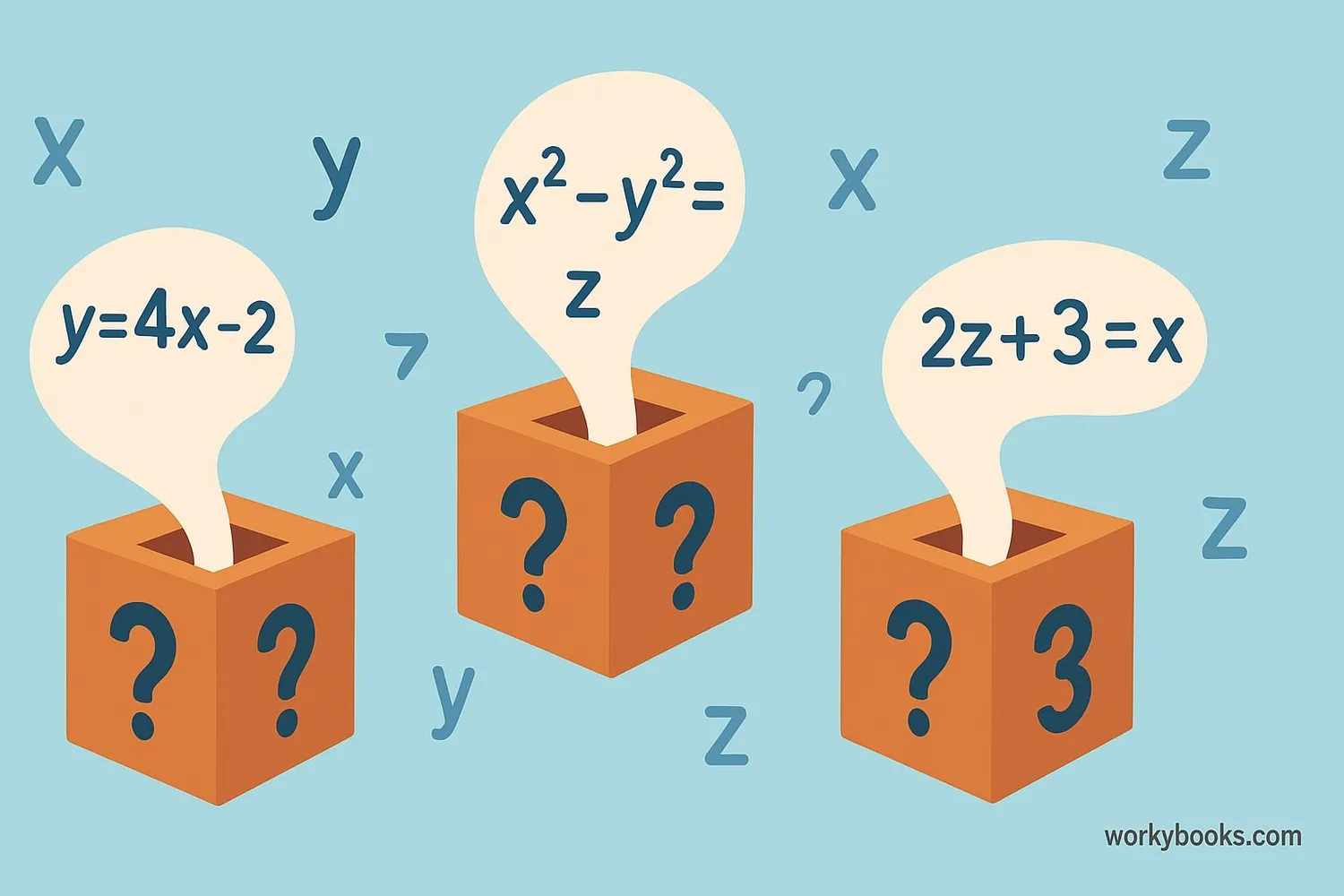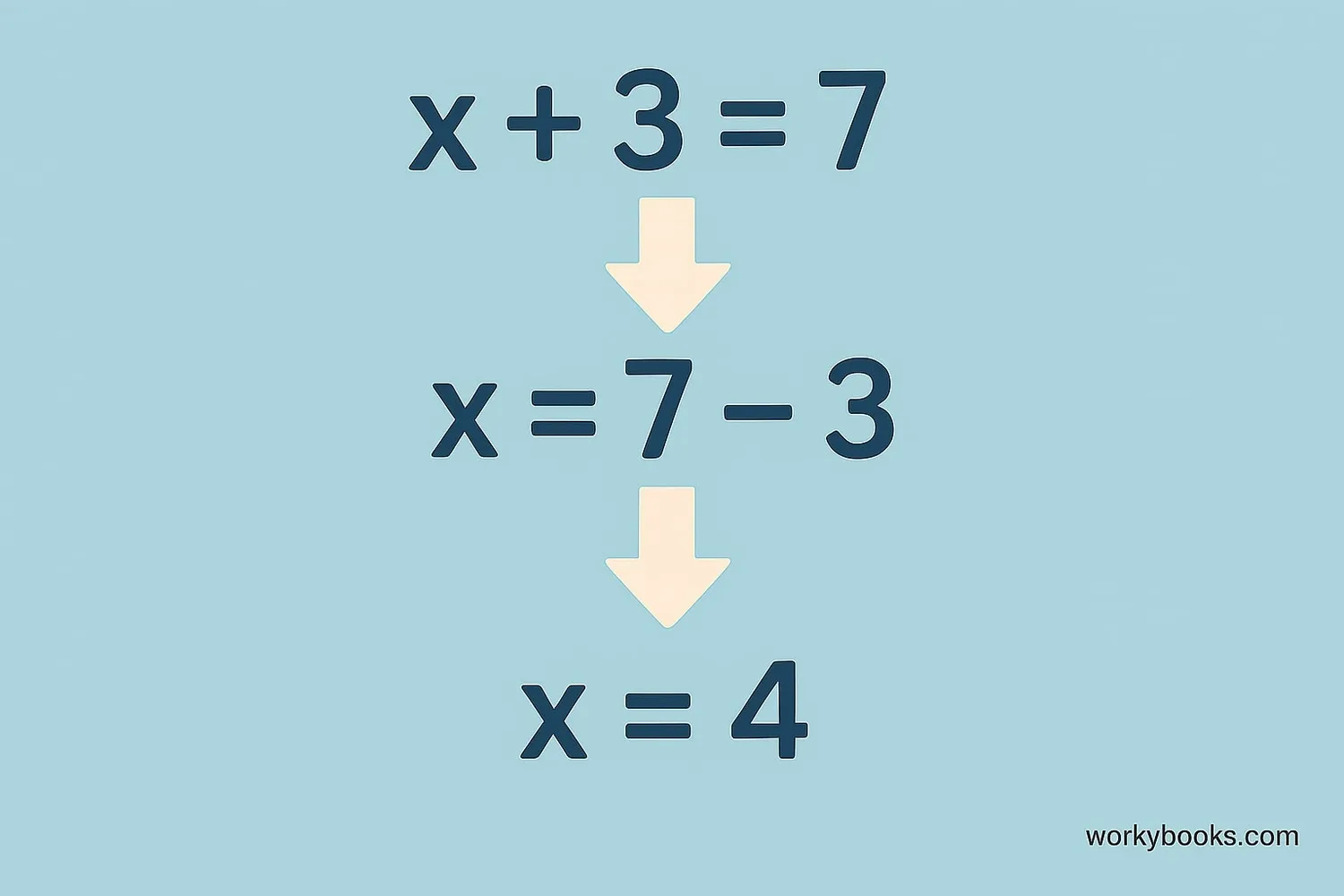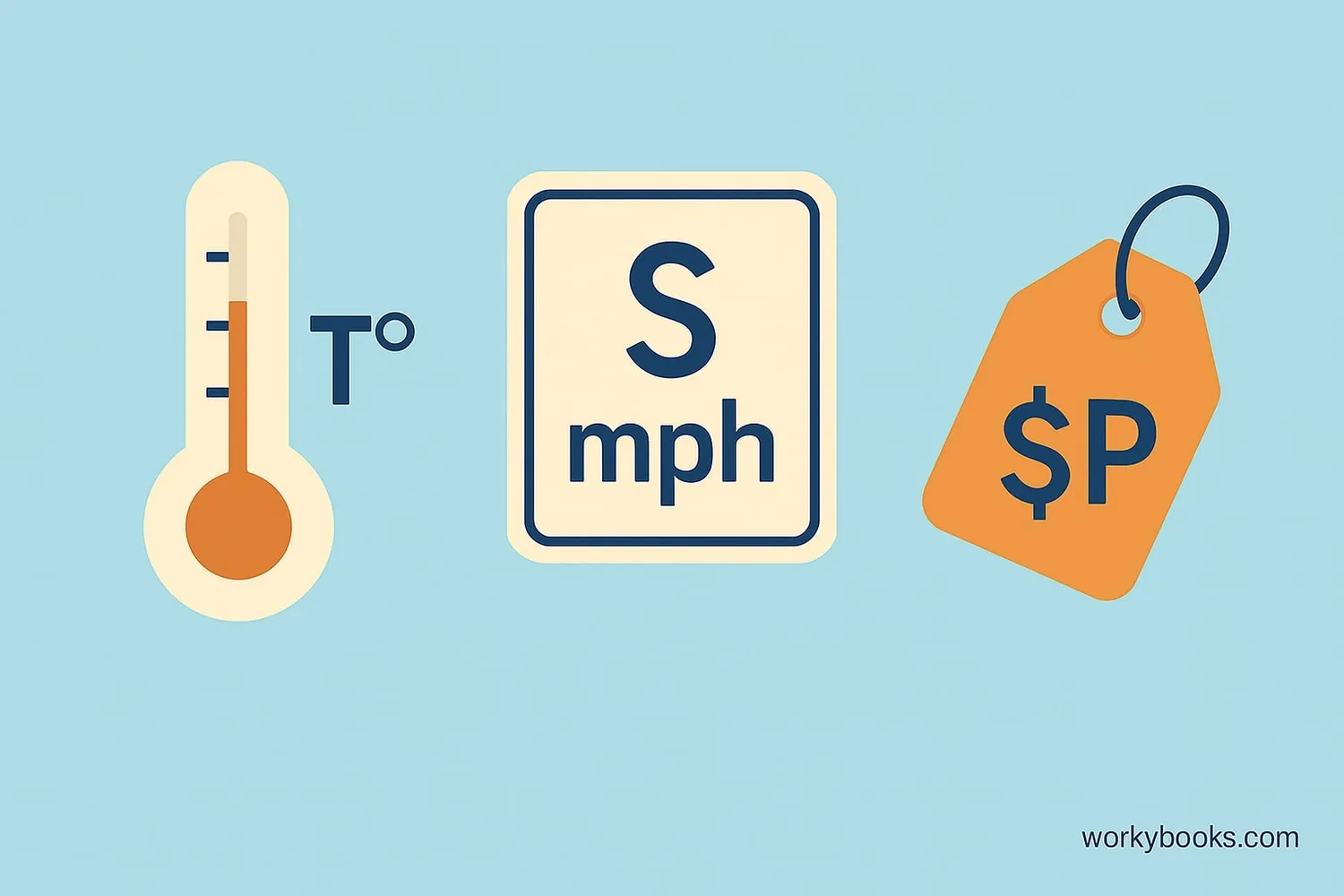Variables - Definition, Examples, Quiz, FAQ, Trivia
Learn how variables work in math with easy explanations, examples, and practice activities
What is a Variable?

A variable is a letter or symbol that stands for an unknown number in math. It's like a placeholder that can represent different values. In algebra, we often use letters like x, y, or z as variables.
Think of a variable as an empty box. You can put different numbers inside the box. For example, in the equation x + 5 = 10, x is the variable. We can figure out that x must be 5 because 5 + 5 = 10.
Variables help us solve problems when we don't know all the numbers. They're like secret codes that help us understand how numbers relate to each other.
Key Concept
A variable is a symbol (usually a letter) that represents an unknown number in an equation or expression.
How Variables Work

Variables are used in equations to represent unknown values. They follow the same math rules as numbers. Here's how they work:
Basic Equation with Variable
In this equation, x is the variable. To find its value, we subtract 5 from both sides: x = 12 - 5, so x = 7.
Expression: 2y + 3
This means "two times y plus three". If we know y is 4, we can calculate: 2×4 + 3 = 8 + 3 = 11
Variables help us write rules that work for many different numbers. For example, the formula for the area of a rectangle is A = l × w, where:
- A is the area (variable)
- l is the length (variable)
- w is the width (variable)
Remember
Variables follow the same math rules as numbers. You can add, subtract, multiply, and divide them just like numbers.
Real-World Examples

Variables aren't just for math class - we use them in everyday life too! Here are some examples:
Example 1: Temperature
The weather forecast says: "Today's high temperature will be 5 degrees warmer than yesterday." If we let T represent yesterday's temperature, today's temperature is T + 5.
Example 2: Shopping
Apples cost $2 per pound. If you buy p pounds of apples, the total cost is 2 × p dollars. If you buy 3 pounds, it costs 2 × 3 = $6.
Example 3: Sports
In basketball, if a player scores s points per game, and plays 10 games, their total points are 10 × s.
Example 4: Baking
A cookie recipe needs 2 cups of flour for every batch. For b batches, you need 2 × b cups of flour.
Variable Tip
When choosing a variable letter, pick one that makes sense for what it represents (like T for temperature or p for pounds).
Variable Practice Quiz
Test your understanding of variables with this 5-question quiz. Choose the correct answer for each question.
Frequently Asked Questions
Here are answers to common questions about variables:
Math Trivia
Discover interesting facts about variables and algebra:
Ancient Variables
Ancient Babylonians used variables in clay tablets over 4,000 years ago! They used words like "length" and "width" instead of letters to represent unknown values in equations.
Variable in Science
Scientists use variables to describe how things work. In physics, E = mc² uses variables to show how energy (E) relates to mass (m) and the speed of light (c).
Computer Variables
In computer programming, variables store information like numbers or text. A program might use a variable called "score" to keep track of points in a game.
Why "x"?
The letter "x" became popular for variables because when printing math books, printers had more "x" letters available since it's less common in Spanish and French words.





